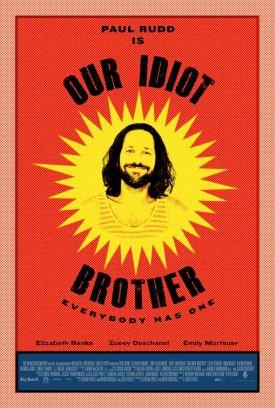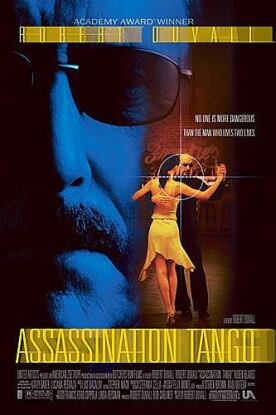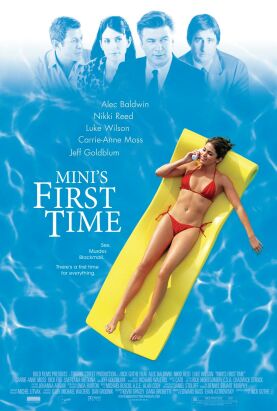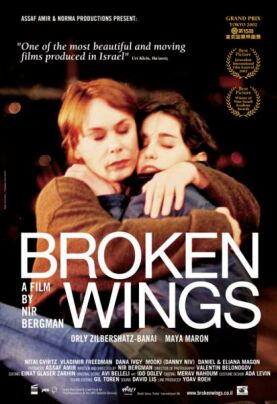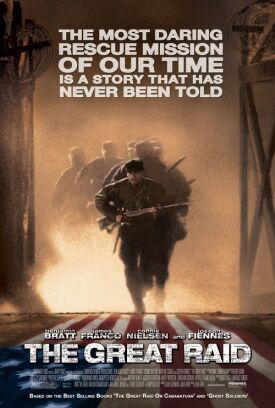Our Idiot Brother
Having made his big-screen debut as a California high school version of Jane Austen’s Mr Knightley in Clueless (1995), Paul Rudd is beginning to look more and more like Hollywood’s ideal leading man of the new century. Mild-mannered, unthreatening and vaguely feminine in his sensitivity and ability to express feeling, he manages to make the post-“Seinfeld” man-boy ideal look almost plausible in movies like I Love You, Man (2009) and How Do You Know(2010). I wonder, however, if his star turn as the aging hippie naif Ned in Our Idiot Brother isn’t rather a reductio ad absurdum of what is becoming the Paul Rudd type? The movie, directed by Jesse Peretz and co-written by his sister, Evgenia (the children of Martin Peretz of The New Republic) with her husband, David Schisgall, starts with the highish concept of Ned as such an innocent that, in the vignette we are shown above the opening credits, he sells some marijuana to a uniformed police officer (Bob Stephenson). The movie begins, then, with his release from the county lockup to find that his pre-jail girlfriend, Janet (Kathryn Hahn), has not only dumped him for Billy (T.J. Miller), who might be his twin, mentally at least, but also claimed as her own his beloved dog, Willy Nelson.
Janet, though ostensibly a hippie pacifist herself, clearly has a thing for compliant and submissive males like Ned, who has been educated to her requirements in the hard school of his own female-dominated family. Now jobless and homeless, he is forced to crash, first, with his alcoholic mother (Shirley Knight) and then with one or another of his three beautiful and accomplished sisters, Liz (Emily Mortimer), Miranda (Elizabeth Banks) and Natalie (Zooey Deschanel), all of whom regard this family black sheep as something of a project to try to set onto some path to responsible adulthood. Perhaps you will not be shocked to learn that, from the Hollywood point of view anyway, the sisters have more to learn from Ned than Ned has to learn from the sisters. Gosh! Bet you didn’t see that one coming.
“Put your trust out there, and people will live up to that.” That’s Ned’s philosophy of life, even after it gets him busted, jailed and, finally, homeless. But the sisters, who ostensibly have their lives and relationships more or less together (as they say these days), all have to learn — with help from Ned and his naiveté — that things are not always as they seem and that a little of his trust and simplicity can put things right for them. Or not. At any rate, they don’t do much good for Ned himself as his continuing to screw up, at least until he is seemingly safely delivered from his troubles at the end with an unpersuasively tacked on happy ending, is necessary to the film’s comedy.
The comedy, by the way, really is funny, if intermittently so, particularly when Ned inadvertently rumbles Liz’s cheating rat of a husband (Steve Coogan) by believing that the latter, a film-maker, really does have to interview his ballerina subject (Lydia Haug) naked. “He’s f****** her, Ned,” wails Liz. “Oh, man! I had a feeling about that,” says Ned the simpleton. Likewise, when Ned tells his parole officer, Omar (Sterling Brown), whom he treats as “free therapy” provided by the state, that he has been smoking weed to relieve his various anxieties, Omar answers: “I didn’t just hear that.” Whereupon, obliging as ever, Ned repeats the incriminating information — and so goes back to jail.
But if the film deserves credit for some good jokes, there is a fundamental contradiction at its heart. On the one hand, Ned is a rebuke to cultural feminization as, in the role of baby-sitter to Liz’s son River (Matthew Mindler), he calls into question her politically correct “values” over the child’s interest in martial arts. “Little boys fight,” he tells her. “It doesn’t mean he is going to grow up to be a frat boy rapist.” On the other hand, he himself is so goofy-gentle and unthreatening that he must remain more feminine than his sisters to the end, a sort of holy fool whose own life is a shambles but whose example is somehow meant to be seen as inspirational to them. The movie wants to have it both ways, but dramatically this makes for a dissipation or dilution of its emotional effect. It also reveals the movie and media culture’s own schizophrenia about counter-cultural people and ideas. The beautiful people, perhaps, are like Ned’s beautiful sisters in feeling both love and contempt for their own hippie siblings.
Discover more from James Bowman
Subscribe to get the latest posts to your email.

